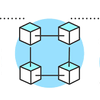How to Optimize the Loading Time of a Web Page
In today's fast-paced digital world, every second counts when it comes to the loading time of a web page. With users having limited patience, a slow-loading website can lead to a high bounce rate, negatively affecting your website's ranking on search engines. In this article, we will explore some tips and tricks on how to optimize the loading time of a web page.
Table of Contents
- Introduction
- Importance of Fast-Loading Web Pages
- Tips to Optimize the Loading Time of a Web Page
- Minimize HTTP Requests
- Enable Browser Caching
- Minimize Server Response Time
- Optimize Images
- Use Content Delivery Networks (CDNs)
- Conclusion
Introduction
When it comes to web development, a fast-loading website is crucial. A slow-loading web page can result in a poor user experience, causing users to abandon your website and seek alternatives. This can negatively impact your website's search engine ranking and your business's reputation. Therefore, optimizing the loading time of your web page should be a top priority.
Importance of Fast-Loading Web Pages
Fast-loading web pages not only improve the user experience but also positively impact your website's search engine ranking. Search engines like Google have started using website speed as a ranking factor. This means that websites with faster loading times will rank higher on search engine results pages (SERPs).
Moreover, faster loading pages have lower bounce rates, which means that visitors are more likely to stay on your website and engage with your content. This can lead to higher conversion rates and ultimately increase your revenue.
Tips to Optimize the Loading Time of a Web Page
-
Minimize HTTP Requests:
HTTP requests are made every time a web page loads. The more HTTP requests made, the longer the loading time of the web page. You can reduce the number of HTTP requests by minimizing the number of files, scripts, and stylesheets required to load the page. -
Enable Browser Caching:
Browser caching allows a web page to store resources such as images, stylesheets, and scripts on a user's device. This means that the web page does not need to load these resources every time the user visits the page, reducing the loading time of the web page. -
Minimize Server Response Time:
Server response time is the time it takes for a server to respond to a request made by a user's browser. You can minimize server response time by using a high-quality hosting service, optimizing your server software, and minimizing the size of your web pages. -
Optimize Images:
Images can significantly impact the loading time of a web page. You can optimize images by compressing them, reducing their size, and using the correct image format. -
Use Content Delivery Networks (CDNs):
CDNs store a website's resources in multiple locations worldwide. When a user visits your website, the CDN serves the resources from the server closest to the user's location, reducing the loading time of the web page.
Conclusion
Optimizing the loading time of a web page is crucial for a positive user experience and improving your website's search engine ranking. By implementing the tips and tricks discussed in this article, you can significantly improve the loading time of your web page. Remember, every second counts, and a fast-loading website can make all the difference in today's digital world.

SEO, yani Arama Motoru Optimizasyonu, web sitenizin Google gibi arama motorlarında daha fazla görünmesini sağlamak için yapılan bir takım çalışmalardır.

If you're preparing for a senior Node.js developer position, it's important to be ready for technical interview questions that will test your knowledge of Node.js and its related technologies. In this

As an SEO developer, you play a critical role in improving a website's visibility on search engines. You need to have a deep understanding of both SEO and web development to ensure that the website is

As a JavaScript developer, it's essential to have a solid understanding of the language and its various concepts. In this article, we will provide some common interview questions and their answers to

Frontend development is an essential part of web development that focuses on building the user interface of a website or application. Frontend developers are responsible for creating visually appealin

Understanding how `this` works in JavaScript is essential for any developer working with the language. In this article, we will explore what `this` is, how it works, and common use cases.

Event delegation is a concept in JavaScript that allows developers to handle events efficiently and improve the performance of web applications. In this article, we will explore what event delegation

JavaScript is a powerful programming language that allows developers to create complex web applications. One of the most important concepts in JavaScript is the ability to handle asynchronous code. In

As web applications become more complex, the size of the JavaScript bundles that are required to run them can become unwieldy. This can lead to slow load times and poor user experiences, particularly
